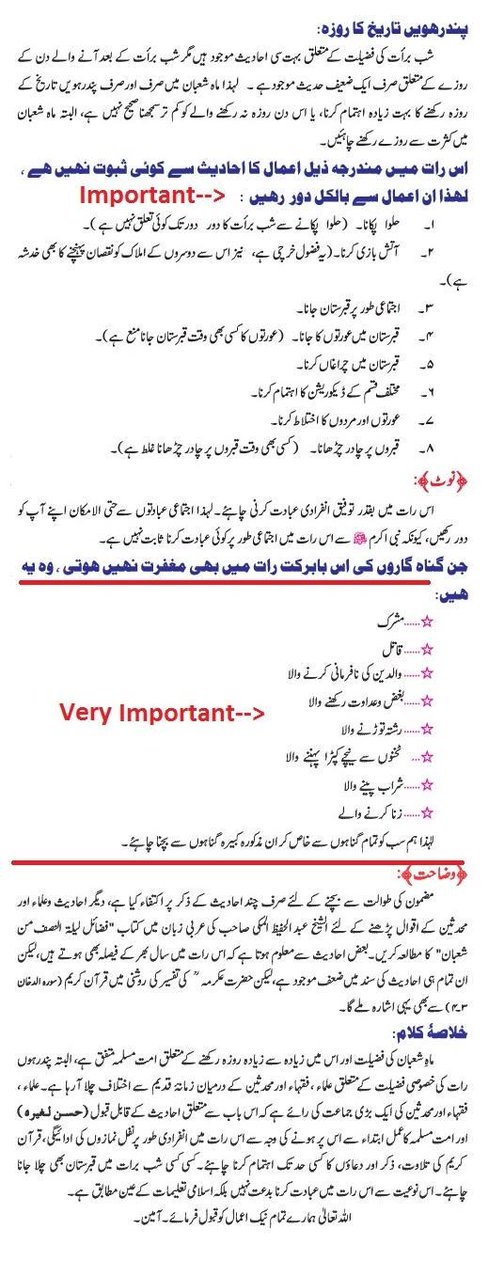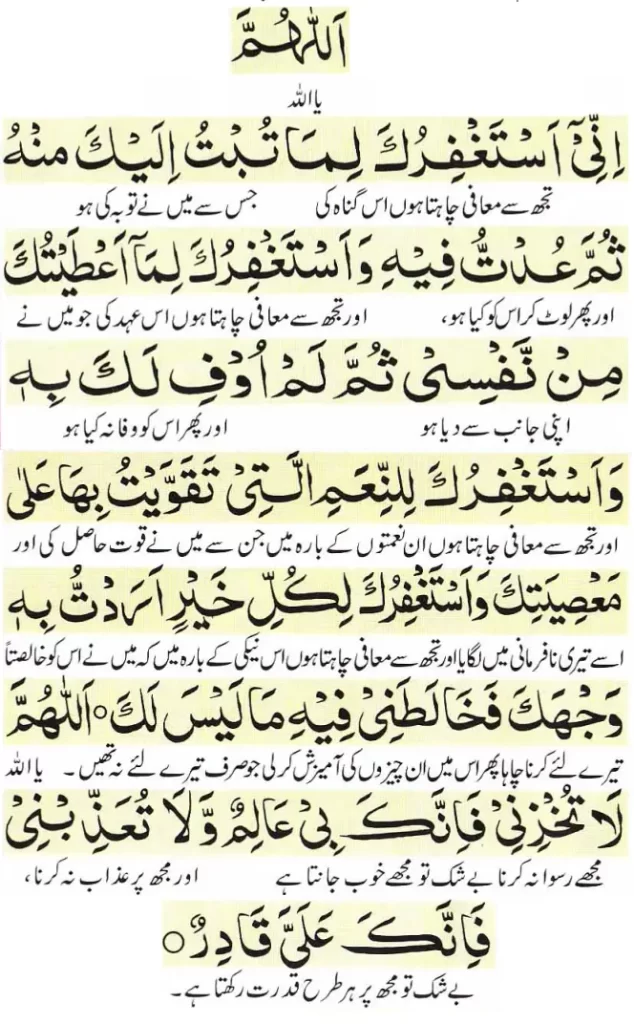Since we have been receiving a lot of queries on the importance of Shab e Barat, its status in Islam, and how to make full use of it, therefore a brief post is being added that will list the Do’s and Don’ts of Shab e Barat in the light of Sunnah.
For detailed references on each of the points mentioned below, you may refer to the following links:
1) 7 Log Jinki Shab e Barat Main Bhi Maghfirat Nahi Hoti (Audio Bayan)
2) Shab e Baraat Kay Aamaal (Short Audio – Hazrat Maulana Hakeem Akhtar Sahab RA)
3) Shab e Barat Ki Fazeelat Aur Sunnat Tareeqa (Audio Bayan)
4) Shab e Barat Ki Fazeelat (Book by Mufti Abdur Rauf Skaharvi Sahab Db)
5) The Merits of Shabaan and the Night of Bara’ah (by Mufti Taqi Usmani Sahab Db)
Do’s and Don’ts of Shab e Barat 2023:
1) 15th Night of Shaban or Shab e Barat, as it is known, is one of the blessed nights in the Islamic calendar.
2) Make sure that you offer all the prayers in the masjid with Jamat. (This should be done on other days as well)
3) Make use of this blessed night by involving yourself in individual nafl prayers. That includes recitation of the Quran, any zikr, praying tahajjud and most importantly, Dua!
4) Make as much dua as possible for the Ummah and for yourself.
5) There is no fixed or particular prayer for this night therefore stay away from any such gatherings where Nafl prayers are being offered in Jamat. Allah(SWT) has granted us this night to get in touch with him personally and individually. We should value this opportunity and avoid gatherings.
6) It is not mandatory at all to stay up the whole night. Pray as much as you can conveniently. After that go to sleep and make sure you offer Fajr Salah in time in the Masjid.
7) You may also visit the graves of your loved ones, as it was done by our beloved Prophet(SAW) as well. However, it is not mandatory. Also, keeping in mind the sort of gatherings that take place at graveyards in these nights, it is sometimes better not to visit as one might get involved in sins.
8 ) Dua is the true essence of this night. Involve yourself in as much dua as you can
Things to be avoided on Shab e Barat:
1) Stay away from Bidat (innovations in religion that are not proven by the Prophet or his Sahaba). Stick to the simple straight path, i-e, the Sunnah.
2) Shab e Baraat has nothing to do with Halwa, Fireworks and other such non-sense.
3) Farz Salah is of much greater importance than any Nafl Prayer. Therefore make sure that we do not stay up so late that we end up missing the Fajr Salah.
7 Types of People Who Will Not Be Forgiven Even on Shab e Baraat
Following are the types of people who, according to hadith, will not be forgiven even on the blessed night of Shab e Barat (if they do not repent).
However, if someone repents from these sins, then Allah(SWT) is all merciful and will surely forgive him.
1) Mushrik (those who associate partners with Allah).
2) The one who cuts off the ties of kinship (qata’ rehmi).
3) The one who covers his ankles with pants, shalwar or any other garment coming from the top (for men only)
4) The one who is disobedient toward their parents
5) The one who drinks Alcohol
6) The one who kills an innocent Muslim.
7) The one who keeps Keena (enmity) or nourishes malice in his heart for other Muslims.








